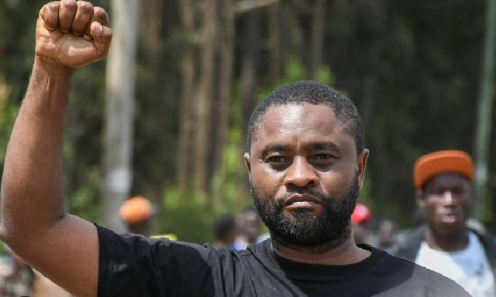Human rights activist Mwabili Mwagodi has rapidly risen to prominence in Kenya’s civil society, becoming a powerful voice in the fight for civic space and accountability. Known for his outspoken criticism of political interference in religious institutions, Mwagodi has inspired a new wave of youth activism rooted in social justice and civic participation.
Mwagodi’s activism gained momentum through the #OccupyChurch movement, which he leads, advocating against the growing political presence in religious settings. He is also the founder of the #CleanTheAltar campaign, launched in June 2024, which urges church leaders to refrain from inviting politicians to services in order to preserve the sanctity of religious spaces. In October 2024, he led a bold protest during a church service in Nyahururu, Laikipia County, attended by President William Ruto. Despite heavy resistance, the protest disrupted the service, drawing national attention and triggering alleged harassment from security agencies.
Operating under the X handle @mwabilimwagodi, the activist has used social media to amplify his message and mobilise youth, especially during the Gen Z-led protests of mid-2024. His activism, however, has come at a cost. On July 23, 2025, Mwagodi was reported missing in Dar es Salaam, Tanzania, where he had been working in the hospitality sector. Witnesses claimed he was taken by unknown individuals, raising alarm among his family and human rights organisations.
He resurfaced days later in Kinondo, near Diani in Kenya’s Kwale County, having reportedly walked to a local police station where he faced threats of detention. Human rights defenders intervened, and Mwagodi was taken to Pandya Memorial Hospital in Mombasa for medical attention before reuniting with his family in Nairobi.
His abduction and mistreatment have drawn international condemnation. Amnesty International and other advocacy groups have decried the incident, highlighting what Vocal Africa CEO Hussein Khalid describes as a “worrying trend of regional collaboration that threatens civic space.”
Mwagodi’s ordeal underscores the growing risks faced by activists across East Africa and serves as a stark reminder of the urgent need to protect freedom of expression and the rights of human rights defenders.

